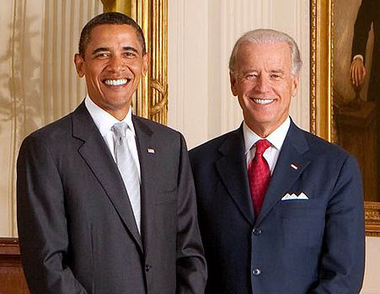Obama signs expanded Violence Against Women Act

JOSH LEDERMAN, Associated Press
WASHINGTON (AP) — President Barack Obama signed expanded protections for domestic violence victims into law Thursday, renewing a measure credited with curbing attacks against women a year and a half after it lapsed amid partisan bickering.
The revitalized Violence Against Women Act also marked an important win for gay rights advocates and Native Americans, who will see new protections under the law, and for Obama, whose attempts to push for a renewal failed last year after they became entangled in gender politics and the presidential election.
"This is your day. This is the day of the advocates, the day of the survivors. This is your victory," Obama said. "This victory shows that when the American people make their voices heard, Washington listens."
As Obama prepared to put his pen to the new law, new government data underscored both the progress that has been made and the enduring need to do more.
The rate of sexual violence against women and girls age 12 or older fell 64 percent in a decade and has remained stable for five years, the Justice Department said in a survey released Thursday. In 2010, women and girls nationwide experienced about 270,000 rapes or sexual assaults, compared with 556,000 in 1995.
The survey also showed that rapes and sexual assault rates involving women have plateaued while violent crime rates overall have declined. Women's advocacy groups called the report proof that the Violence Against Women Act and heightened awareness of the problem by police has had a positive effect.
Still, 1 in 5 women will be raped during their lifetime, said Obama, asserting a continued need for action nearly two decades after the bill's original passage in 1994.
"It didn't just change the rules, it changed our culture. It empowered people to start speaking out," Obama said.
The law authorizes some $659 million a year over five years for programs that strengthen the criminal justice system's response to crimes against women and some men, such as transitional housing, legal assistance, law enforcement training and hotlines. One element of this year's renewal focuses on ways to reduce sexual assault on college campuses. It also reauthorizes the Trafficking Victims Protection Act, adds stalking to the list of crimes that make immigrants eligible for protection and authorizes programs to reduce the backlog in rape investigations.
After twice being renewed with little resistance, it was something of a surprise in 2011 when lawmakers let the act expire. At the crux of the election-year clash were disagreements about expanded protections for gays and lesbians, Native Americans and illegal immigrants.
Sensing a political advantage, Senate Democrats offered an expanded law that specifically protects gays, lesbians, bisexuals and transgender Americans and gives tribal authorities the power to prosecute non-Indians for abuse committed on tribal lands. Republicans saw the move to load a popular bill with controversial elements as a provocation and objected to the Native American provisions on constitutional grounds. Democrats rejected a Republican alternative, arguing it didn't go far enough.
Continued resistance became less tenable for the GOP after its less-than-stellar performance among women voters in November's election. In February, House Republicans capitulated and allowed a vote on an almost identical version of the bill, which passed 286-138. It was the third time in two months that House Speaker John Boehner let a Democratic-supported bill reach the floor despite opposition from a majority of his own party — a clear sign that Republicans wanted to put the issue behind them.
"When I see how quickly it got done, I'm feeling — it makes me feel optimistic," Obama said sarcastically as he signed the bill Thursday.
Obama and Vice President Joe Biden offered special thanks to Republicans, including Sen. Susan Collins of Maine, who supported the renewal despite opposition from many in her party.
House Speaker Nancy Pelosi, Attorney General Eric Holder and members of the House and Senate from both parties joined Obama for the signing ceremony. Biden, who wrote and sponsored the original law in 1994, credited survivors who brought attention to the issue by speaking out despite the pain of reliving the attacks they endured.
"It brings it all back like a very bad nightmare," Biden said.
It was just days after the weddings that the assaults started, recalled Diane Millich, a Native American and advocate who introduced Biden. She said her ex-husband would mock her defenselessness by calling tribal police and sheriffs, who refused to act until he showed up with a gun.
"All the times I called the police and nothing was done only made my ex-husband believe he was above the law and untouchable," she said.
Linda Fairstein, the former chief sex crimes prosecutor for New York County, said domestic violence remains a huge problem in many Native American and ethnic communities, where women have been less able to seek recourse.
"This gives access to tens of thousands of victims who have just been denied access to the criminal justice system," Fairstein said in an interview.
Although the Violence Against Women Act has been credited with helping reduce domestic violence incidents by two-thirds since its inception, advocates were careful not to suggest that the problem has become any less urgent. Some questioned the accuracy of the new Justice Department data and whether the decline really represented fewer women reporting attacks.
"Having worked in the field, I don't think things are that much better for women," Fairstein said. "That's why these protections are so important."
___
Associated Press writer Darlene Superville contributed to this report.
Copyright 2013 The Associated Press.





